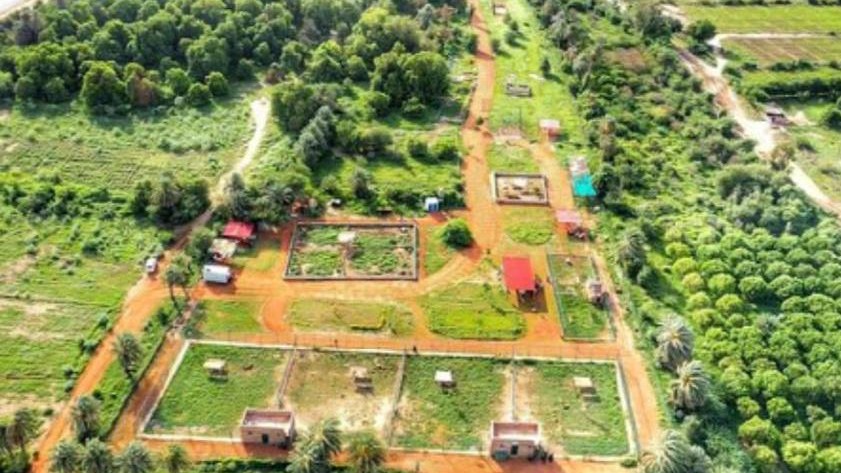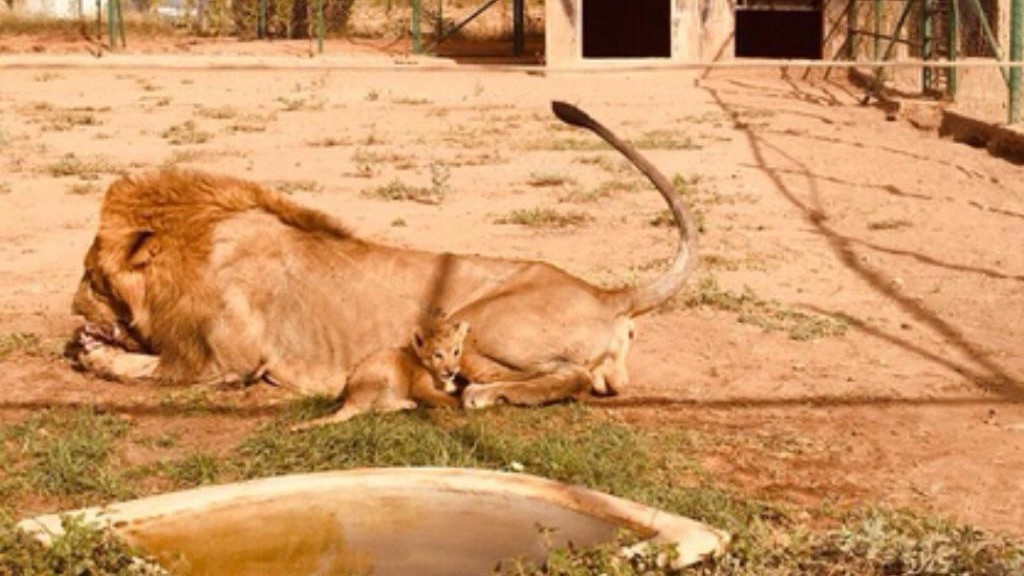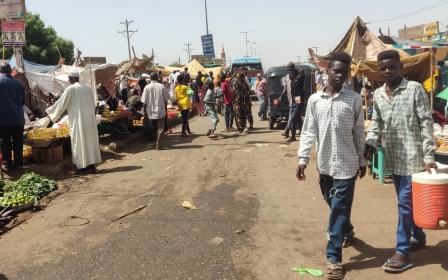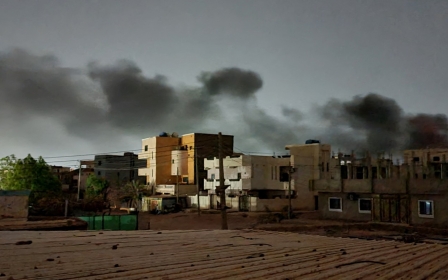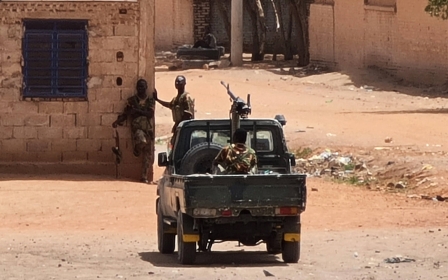Sudan crisis: Animals in sanctuary killed and eaten by RSF fighters
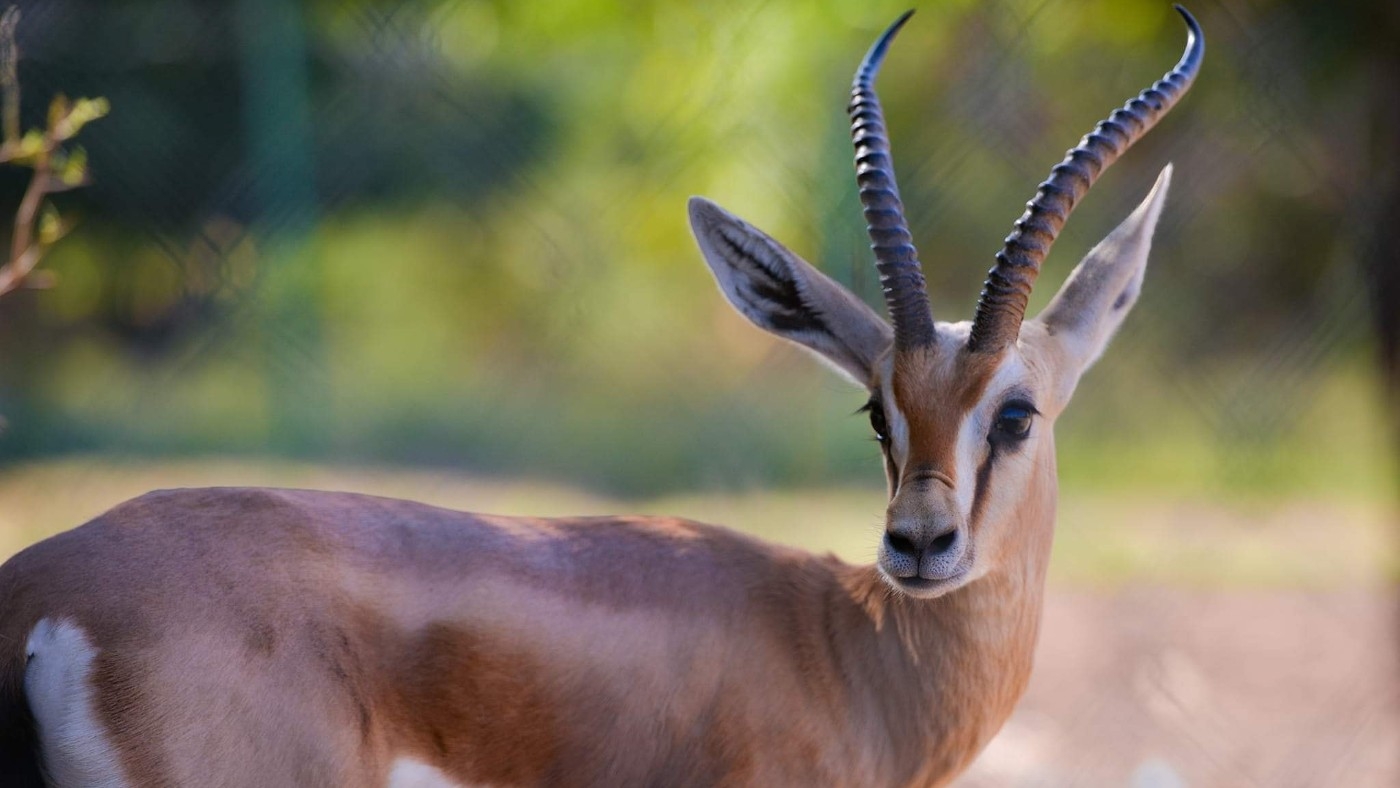
Fighters from Sudan’s paramilitary Rapid Support Forces (RSF) have broken into an animal sanctuary on the outskirts of Khartoum, shooting and taking away one camel and two gazelles, the sanctuary's manager told Middle East Eye.
Mansour Babiker Hamid, the chief executive of Sudan Animal Rescue, said this was the second time the RSF had stormed the zoo in the last week, stealing animals for meat and leaving the remaining staff terrified.
“There are four workers at the zoo right now,” Hamid told MEE. “Yesterday I spoke to one of them, Santino, who told me the RSF had attacked one of the camels in the zoo in order to eat it. The camel was shot and taken with them,” he said.
“The day before, a different group stormed the zoo, assaulted two deer and took them away to eat,” Hamid said. The camel that was shot was a calf and was with its mother at the time. Two gazelles were also taken.
Sudan Animal Rescue is 35km from the centre of Khartoum, Sudan’s capital. It houses 26 lions and five hyenas, as well as different types of wild cat, ostriches and birds, monkeys and reptiles, according to Hamid, who spoke to MEE on the phone.
New MEE newsletter: Jerusalem Dispatch
Sign up to get the latest insights and analysis on Israel-Palestine, alongside Turkey Unpacked and other MEE newsletters
Since the outbreak of war between the Sudanese army and the RSF on 15 April, staff at the zoo have struggled to keep the animals – and themselves – safe. Before the RSF incursions, the sanctuary had been impacted by army air strikes, which disrupted power supplies and seriously disrupted the animals.
Lions may escape
The lions at the zoo are contained by electrified fences, which have been affected by power outages. The animal rescue centre has solar panels to provide backup power, but they are not sufficient to keep the water pumps working, meaning the animals have also been without clean water.
This deeply insecure supply of power has also raised the prospect of the lions escaping from their enclosures and roaming off into war-torn Sudan.
Providing food and water for the wild animals has been hugely difficult for the zoo’s staff.
Between them, the 26 lions need to eat 135 kilos of meat every day, Hamid told MEE. The manager and his staff have worked tirelessly to ensure the delivery of food and water from markets and facilities, mostly in al-Jazirah state, which borders Khartoum state.
“We get water brought in by tankers,” Hamid said. “It is so hard to find food.
"There are some safe places in Sudan. We call different traders to prepare meat for the animals and they bring it in from al-Jazirah state. We pay them in cash or by bank transfer. The meat is cow, horse, donkey – anything that is available.”
The deliveries come from different sources and are carried out weekly. The food is brought in by car and the drivers pass through army and RSF checkpoints on their war to the zoo.
Prior to the war, the zoo had its own vehicle, which would go to different markets to bring in provisions for the animals. The vehicle was stolen by the RSF in the early days of the war.
Appeals for help
Since the war began, Hamid has been desperately trying to secure safe transfer of his animals from the zoo to a neighbouring country or a safer part of Sudan. He is looking to raise funds online, has travelled across Sudan and been in negotiations with authorities in Ethiopia and Egypt.
“For more than two months, I have been appealing to international organisations working in the protection of wildlife to transfer animals to a safe place or a neighbouring country,” he told MEE.
“But, so far, we have not been able to move the animals out of the centre, which makes their situation very, very difficult. This is dangerous for our animals and for the workers in the zoo, especially since these forces started attacking the animals.”
Civilian sources in Darfur, Kordofan and Khartoum have told MEE that RSF fighters do not have a stable way of feeding themselves, and thus rely on looting goods or paying for food with looted cash.
In the last few days, the zoo manager has been in Port Sudan and to Halfa, on the border with Egypt. “I went to Egypt to meet with officials there to arrange transportation, but I am facing a problem in obtaining a visa to enter Egypt,” he said.
Hamid said he had contacted major international organisations, without much success. "The situation is getting worse day by day,” he said.
Middle East Eye wrote to the Rapid Support Forces asking for a response to the allegations but received no response.
This article is available in French on Middle East Eye French edition.
Middle East Eye delivers independent and unrivalled coverage and analysis of the Middle East, North Africa and beyond. To learn more about republishing this content and the associated fees, please fill out this form. More about MEE can be found here.


